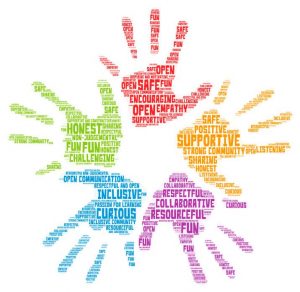
In a whirlwind of activity, my first month in the BEd program flew by as quickly as it started. Overall, I’m still feeling every bit as flustered and overwhelmed as I did my first week in the program… but at least I am ever so slowly gaining ground on my readings and assignments–with much help from the rest of my cohort.
The highlight of my experience in the program thus far has most definitely been the friendly, conscientious and awe-inspiring people in my cohort. I feel like I already understand why graduates of the program emphasized drawing from the cohort as a source of strength. When I began my first week with only an unconfirmed conditional acceptance, four part-time jobs that I hadn’t made preparations to leave, no textbooks, and no clue as to what courses I was enrolled in, I was terrified about the kind of first impression I would make on my peers. I consider myself a conscientious and dedicated student, but compared to my peers who are so well-composed, I was afraid that they would dismiss me as careless, lazy, unprepared, and shy away from working with me.
Despite my fears, in the first week one of my peers took the initiative to strike up a conversation and introduce herself, another offered me her textbook to take overnight to do the readings, and another kept the entire cohort organized by laying out all of the homework we had due in the upcoming days. These individuals may not have thought much of their generous actions, but to me that generosity was the only thing that kept me from bursting into tears and removing myself from the program at the end of the first week.
The kindness that I experienced from my peers during first week–as well as all the subsequent week–really solidified my image of what a safe, inclusive environment should look and feel like. I felt welcomed to the BEd program because my peers created a safe, inclusive environment where everyone is friendly, non-judgemental and supportive. Thinking ahead to when I begin my practicum in a middle school this week, I am reminded that it will be my role as a future educator to foster the development of a supportive classroom environment.
There are many ways that I think educators can create a safe and inclusive classroom environment, one of which is by acknowledging and respecting students as the capable individuals that they are. While I believe that recent teaching pedagogies are more in line with these sentiments then they were when I was in middle school, there is still room for teachers to be reminded that their students are capable individuals who should be given credit for their abilities. When I was in middle school, I remember that my favourite teachers were ones who showed clear respect for the students by asking for class input on upcoming course material and inviting students to bring stories of their passions and expertise into class discussions. Although students may not stand on equal ground to teachers in terms of knowledge of class content due to the inherent nature of the relationship, I think it is important for teachers to acknowledge that this does not necessarily mean that students are not mature enough to take charge of their learning and parts of important decision-making processes. In a way, I see how this idea is incorporated when promoting self-regulated learning in classrooms and encouraging individual autonomy in learning.
I am sure that as the year goes on I will have a much more expansive list of suggestions on promoting inclusive classroom environments, so I look forward to adding tips and skills to my arsenal from now on.
